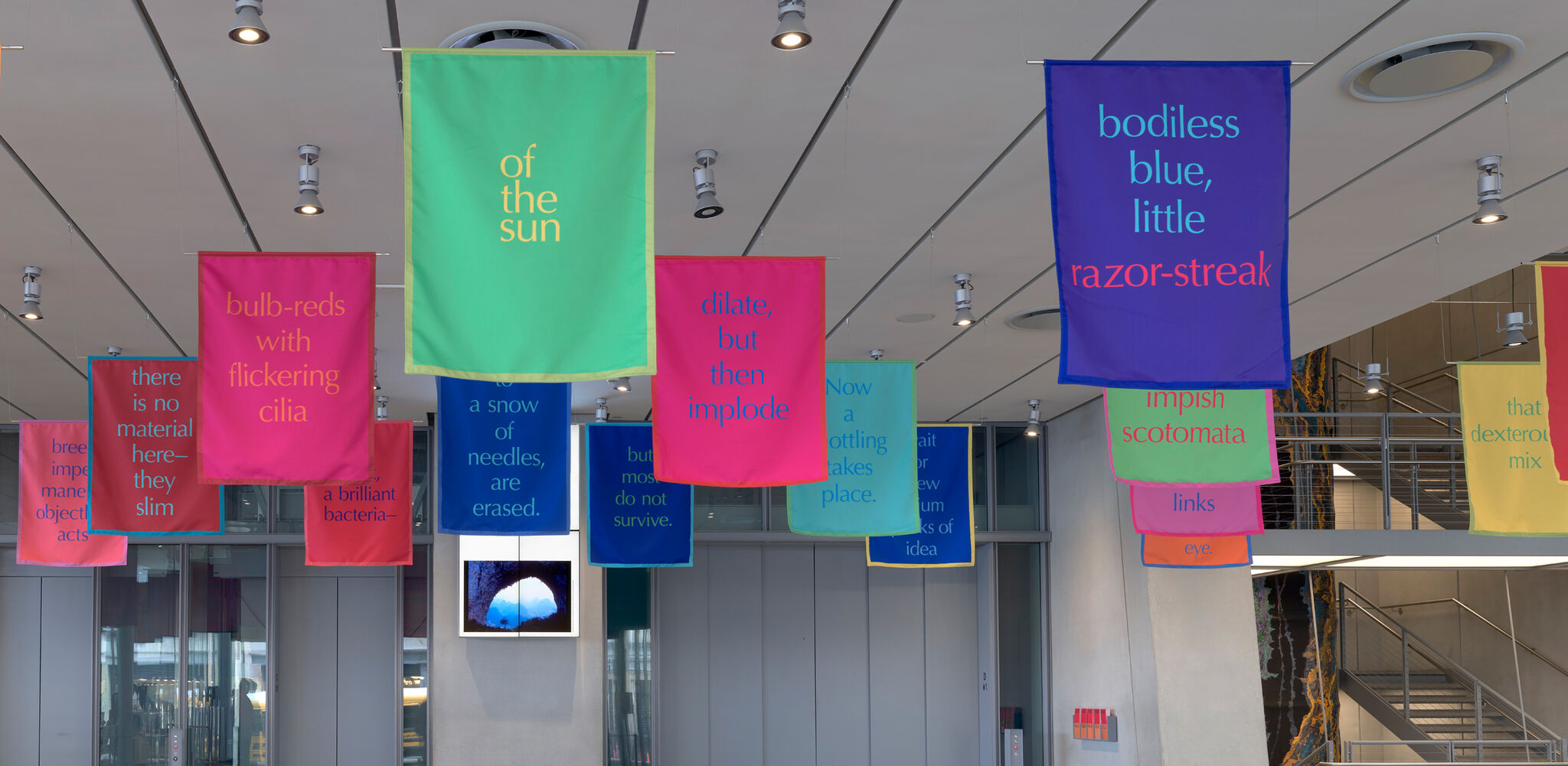Renée Green
“My work has much more to do with association than anything literal or a direct way of going about things. My approach is circuitous . . .”
— Renée Green
Renée Green is an artist, writer, and filmmaker. She was born in Cleveland, Ohio, and lives and works in Somerville, Massachusetts, and New York City. As a child she visited and studied at the Cleveland Museum of Art. Green later studied at Wesleyan University where she wrote a dissertation titled “Discourse on Afro-American Art,” which examines art from the Harlem Renaissance and Black Cultural Nationalism. Green painted throughout the 1980s and, in 1989, she participated in the Whitney Independent Study Program.
In 2007 as part of the exhibition United Space of Conditioned Becoming at Participant Inc. in New York, Green presented the first work of her Space Poems series for the first time. The series consists of colorful hanging banners that use text from a range of sources including literary titles, poetry verse, names of deceased friends, cultural figures influential in the artist’s life, as well as oblique phrases written by the artist to explore potential language. In Space Poem #7, Green reimagines May Swenson’s poem, “Color Without Objects.” The artist described this series as being, “open-ended and capacious; in them, it’s possible for me to retrieve many, many things . . . I was always working in multiple mediums . . . I studied painting, theater, photography, cinema; I majored in printmaking. I’m interested in the possibilities between forms, ideas, and language. I’m always in between, working with combinations of many of these things.”
Activities
Artist as Observer
How do you create a poem with existing language?
“My practice over time has been to find forms of distillation, refining in a way that’s almost like writing a poem: What can be the most resonant distillation I can create to convey something into a form?” describes Green. Instruct students to write a poem using words they used in text messages they sent to someone they care about. Encourage them to experiment with font type and size of the words as well as their order. Invite students to read their works aloud. Engage the group to discuss their different processes in this activity.
Artist as Storyteller
How do you make thinking visible?
Encourage students to discuss with each other an issue, idea, or theme that they are concerned with or interested in investigating. Have students first create a mind map with all the words and/or images they associate with their chosen topic. Finally, have students transform their mind maps into a three-dimensional format with selected media of their choosing in order to narrate their thinking. Display the pieces and have students converse about what it’s like to understand their peers’ reasoning.
Artist as Experimenter
How do you transform one work of art into another?
Renée Green says, “I keep coming back to the fact that, for me, art informs art.” Invite students to think about and discuss their favorite forms of art. Have them select one they would like to focus on for this project. Challenge the students to take the art form they have chosen and transform it into another. For example, they could change a favorite painting into a poem, or convert a novel into a sculpture. Have students install an exhibition of their recreated artworks.
Artist as Critic
How do you question information sources?
Green explains, “I think about media, I think about the ways things are moving and how they are made because I study media . . . .” Have students discuss their own understanding of and relationship to media sources. Encourage them to explore with each other what questions, hesitations or distrust they might have regarding varied media sources. Then instruct them to select a newspaper or magazine article. Have them cross out words of their choosing to give their text new meaning. Have students share their completed works and reflect on how media sources can be manipulated.
Additional Resources
Bortolami Gallery: Works by Renée Green.
Artforum: Interview with Renée Green.
Frieze: Article about Renée Green, “Excerpts,” 2020.

